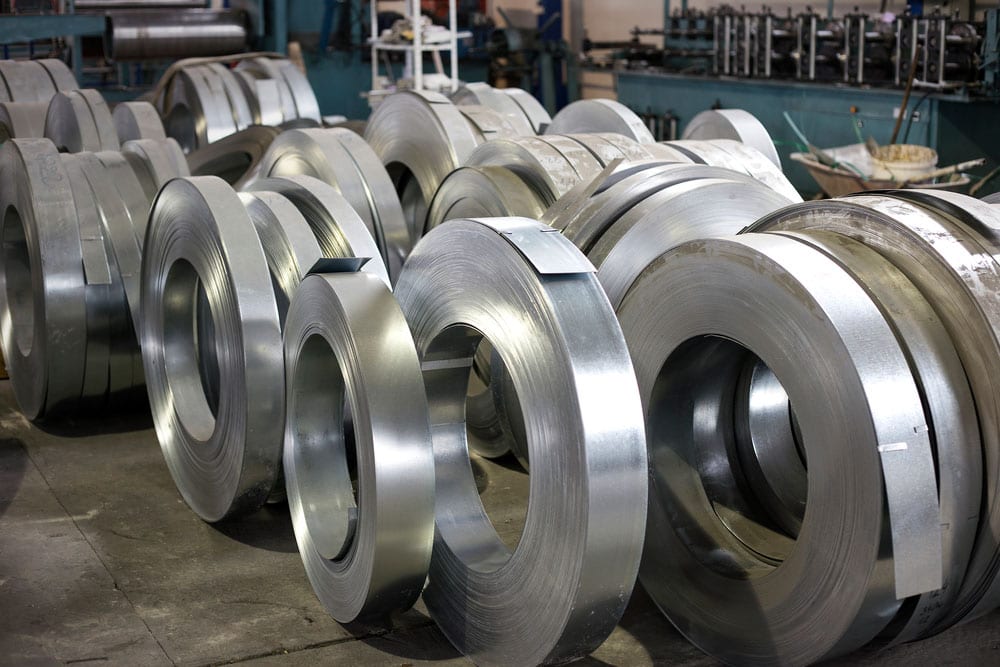6 reasons why make-to-order manufacturers need inventory control software

One of the questions we’re frequently asked goes along the lines of “We’re precision engineers who pretty well always make-to-order so why do we need inventory control software?” And although it’s tempting to reply with “It’s an amazing element of our ERP system, E-Max ERP – why wouldn’t you?!”, we believe there are plenty of other reasons as to why every manufacturer, whether they make-to-order or make-to-stock, needs a quality stock control system. But there remains a healthy dose of scepticism amongst engineers so let’s look at the production control process and see why inventory control software really is a must.
t
The basic MRP process
At the simplest level, most manufacturers follow the basic principles of production control or materials requirements planning (MRP) to produce their end product.
This includes stages such as the following:
- sales orders are taken for a product
- manufacturing orders are created
- the product’s Bill of Materials (BOM) is exploded into its components to identify material requirements
- items not in stock are purchased and received
- the product is manufactured
- the product is then delivered and invoiced
t
Are we overcomplicating matters?
For the typical precision engineer or machinist who typically turns bar, castings or forgings into a finished product all this might seem excessive.
Why not just take the sales order, use that to tell the production department what to make (thereby not needing to raise a works order), raise and receive the purchase order for material, record the time against the sales order and deliver and invoice the final item. This will also dispense with the need to worry about the stock side of things and simplify the whole process.
Taking this simplistic approach, a basic database or even a spreadsheet should be enough to store the data and control the whole process – it’s an approach that has been adopted (and discarded) by many companies in the past.
Sounds simple but what issues might arise?
Let’s have a look at the typical issues that spoil this simple approach:
- Companies that make finished items from bar might make and keep more parts than are required to fulfil the customer’s order, knowing that the customer is likely to order more in the future. The excess finished items and material is often put aside, then mislaid or forgotten about. Inventory control software enables the business to know exactly how much it has left in stock of both material and finished items (and where they are) so they can be used when another order for that item is received.
- Many customers are prepared to give suppliers a schedule of requirements for parts that are used repeatedly. This means that the parts can be made in an economic batch size via a works order which would be separate from the sales order.
- This leads to further requirement for the machinist to constantly check weekly what he or she has ordered Production to make against the quantities that the customer is requiring.
- Depending on volume and cost it might be necessary to actually record how much material is in stock to give customers a faster turnaround or to buy in more cost-effective quantities
- Where traceability is essential simple solutions make it hard to store data and documents against each stock batch.
So it seems like inventory control software might be a vital tool in any manufacturing business’s arsenal after all. If you’re still unconvinced, here’s 6 key reasons why manufacturers would benefit from a quality stock control system.
Benefits of an inventory control system
1. Accurate stock information
The more automated the system, the fewer the manual errors. When part of a wider system, such as ERP software, data generally only needs to be entered once, with the information flowing through the company departments such as sales, production, purchasing and warehousing. Knowing what is going in and out of the warehouse can help lower costs, stop fraud and increase the speed of order fulfilment.
2. Improved efficiency
In addition to there being less paperwork with inventory control software, efficiency is improved in various other areas. The software provides information on the location and quantity of every item, thus speeding up picking and packing. Bar codes, scanners, mobile devices and RFID can also be used to speed up processing and recording of items.
3. Better planning
An effective inventory control system can provide lots of useful information for future planning by giving businesses an increased understanding of their sales patterns. By being able to see what items are used most often (and those that are not) businesses can ensure that they have a constant supply of frequently used materials whilst reducing the amount of stock of less popular items. Reviewing the profitability of each stocked item is also useful to ensure that the most profitable items are always stocked.
4. Reduce theft and fraud
With a transparent stock control system, it is easy to identify missing materials. Moving away from easily altered excel spreadsheets to an inventory control system limits opportunities for employees to manually alter stock levels. Automated stock tracking with bar codes allows the company to know exactly what quantity of materials are stored and where at any point in time. Employees who know that stock levels are being regularly monitored are less likely to steal.
5. Cost savings and clearer financial picture
By knowing what stock you have and what you need, the right balance of stock can be held. Companies can avoid over-ordering or holding excess inventory, both of which can negatively affect cash flow and profitability. Inventory control software, when used as part of a wider ERP system, is also helpful in identifying the fastest and cheapest suppliers for certain items. In addition, finance departments find stock control systems beneficial as they can easily access stock valuations for account balancing and financial reporting purposes.
6. Greater customer satisfaction
Without clear insight into what you are holding, customers can be given the wrong information, leading to dissatisfaction when their orders are delivered later than expected and potentially damaging your company’s reputation. An inventory control system ensures you know what you have in stock and what may need ordered, meaning you can provide customers with accurate delivery dates.
An effective inventory control system is vital for the survival of a manufacturing company. As per the above, without a good handle on stock control, there’s no clear account of how well your business is doing. E-Max ERP includes a comprehensive stock control system that enables manufacturers to get the right amount of stock to the right place at the right time.
To find out more detail on our inventory control functionality, take a look at our website, contact us on 0808 109 2035 or drop us an email. You can also book an in-depth demo with us to see how our manufacturing ERP system tracks stock from initial quote through to final invoice.


